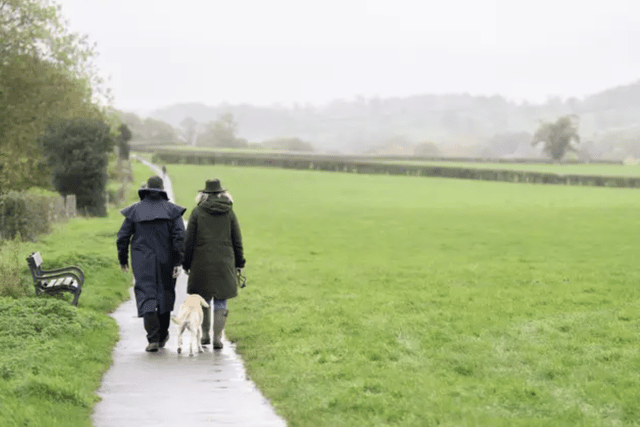More than 100 miles of footpath lost in Birmingham over past century
and live on Freeview channel 276
More than 100 miles of public rights of way has disappeared in Birmingham over the past century, analysis shows.
The Ramblers – a charity for walkers – has carried out extensive analysis of how footpaths have changed over the past century.
Advertisement
Hide AdAdvertisement
Hide AdBy comparing historical and contemporary maps, the charity has estimated 102 miles of protected footpath has been lost in the former Birmingham area since the turn of the 20th century.
Public rights of way are paths that anyone has a legal right to use. While these are predominantly used by walkers, they can include bridleways also used by cyclists and horse riders.
Further research from the Ramblers and the New Economics Foundation think tank shows the average postcode in Birmingham has 1,900 metres of footpath within a 10-minute walk.
The average English postcode has around 2,700 metres of public rights of way within a ten-minute walk. However, the charity has warned people across the country are missing out on the benefits of walking in nature.
Advertisement
Hide AdAdvertisement
Hide Ad

Jack Cornish, head of paths at the Ramblers, said readily available walking routes can have a "massive impact" on health outcomes. However, he warned these currently benefit "the old, the healthy, the wealthy and the white", while those in more deprived areas have far less access to nature.
The charity has further called for a £650 million investment in paths across England and Wales – which they say could pay dividends in improving the nation's health.
In total, nearly 50,000 miles of public right of way have been lost over the past century. In recent years, the UK Government has been exploring the possibilities of "social prescribing", with trials announced in 11 local authorities in England last year. The trials will see patients prescribed activities including walking and cycling as an alternative or alongside medication.
Separate figures from the Department for Transport show 39% of Birmingham residents walked for leisure at least once a week last year – lower than the England average of 56%.
Advertisement
Hide AdAdvertisement
Hide AdA spokesperson for the Department for the Environment, Food and Rural Affairs said: "We are committed to increasing access to nature and our Environmental Improvement Plan sets out our ambition for every household to be within a 15-minute walk of a green or blue space."
"We are working to reduce other barriers preventing people from accessing green and blue spaces, including through our £14.5 million ‘Access for All’ programme which includes a package of targeted measures to make our protected landscapes, national trails and wider countryside more accessible for all communities," they added.